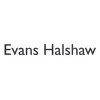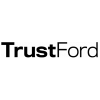





Buying your next used car can be safe and secure as long as you adhere to some fundamental rules. These rules are as follows:
1. Paying for the car
As a golden rule you should never send your money to a location outside of the UK. If you are being asked to do this then alarm bells should start to ring in your head. It's a sure fire sign that a fraudulent seller is trying to acquire your money illegally. You should only pay for the car when you're actually collecting it from the person selling the car.
2. Know the market value of the car you are looking to buy
It's important to know the market value of any used car that you are looking to buy. Knowing the true market value of a car puts the power into your own hands. You can check a car's market value by simply comparing it to a similar car on the DesperateSeller.co.uk website. You can also get a more accurate market valuation by using our free car valuation service. If a car that you are interested in buying is being advertised at a much lower price then immediately ask yourself why this is the case. If it looks too good to be true then the chances are that it probably is - so beware!
3. Go and view the car
Another essential thing that you always need to do when buying a used car is to actually go and see the car itself and any associated documentation. You would never buy a house without seeing it first so make sure you do the same when buying a car. If the seller asks you to come and see the car in the dark hours then be suspicious as there maybe something that they don’t want you to see in daylight such as scratches or dents.
When checking the documentation make sure that the address on the V5C document is the same address that the car is located at. It's also important to make sure that the VIN number in the document is the same as the VIN number in the car itself. The VIN is usually located on the car's chassis or on the windscreen.
4. Carry out a vehicle history check
If there's one thing we do recommend strongly that is to carry out a history check on the car you are interested in buying. By carrying out this check you will be able to find out a lot more about the car's background such as whether the car has been recorded as stolen, whether it has been written off or there's outstanding finance on it. Although carrying out a vehicle history check is not free, it is worth every penny as it could save you making a massive mistake and lose thousands of pounds. You can carry out a vehicle history check via DesperateSeller.co.uk today.
5. Checking the documents
The most important documents to view when buying a used car are the V5C, Service History and MOT certificates. You need to take a good look at all three documents before you even think about handing over any money. Make sure that all the documents you view are originals and not photocopies. If there are any strange amendments then be suspicious. You can find out the true authenticity of a V5C document by holding it up to the light and seeing if you can see the DVLA watermark. Always make sure that the person selling the car is the recorded keeper. If they are not then they may not be legally entitled to sell you the car in
question.
6. Check your running costs
Find out how much it costs to run a used car over a year with The Money Advice Service
Follow our simple advice to stay safe and secure online.
Ensure your PC is fully protected
The first thing you need to do is make sure your PC is fully protected. You can do this by ensuring that any security software you have installed is up-to-date. This includes software such as anti-virus protection, anti-spyware software and your firewall. You should also make sure that your Wi-Fi connection is secure by setting up a secure password. Block any spam emails and always use the most up to date web browser.
Do your best to avoid any scams
If you've seen a car that you’re interested in buying but the price seems too good an offer to be real then the chances are that it probably is. This is a common way for car scammers to engage a car buyer into giving them their money. Therefore always make sure the seller has a valid UK address and a telephone number, preferably a land line number. Never agree to buy a car over the phone without actually seeing it and taking it for a test drive.. If the seller is asking for any type of upfront payment then alarm bells should start to ring. Finally, never send money abroad as the chances are high that it will end up in the hands of a fraudulent car seller.
Do your best to protect your own identity
You can help reduce the possibility of identity theft by making sure your web browser is the latest version. You should also set up your security software to block any spam or bogus emails. Be very wary of providing any of your personal information online.
When looking for your next car online, or even in your local paper, fraudulent car adverts are used by criminals posing as sellers. The common scenario usually involves adverts with a fake vehicle at a really low price. These adverts usually contain a faulty telephone number and when it comes to payment they ask buyers to transfer money into a payment protection service or outside the UK. Telltale signs of a fraudulent seller are:
* The car that is being advertised is well below its true market value.
* The person selling the car will continue to email you instead of speaking to you on the phone.
* The seller will make excuses as to why they are living abroad or why they don’t have access to a phone.
* They will ask you to send your money to somewhere outside the UK using services such as Paypal, Ebay or Google Wallet.
* They'll ask you to you to use a “Money Transfer” service the most common one being Western Union.
If you have found a car that you are interested in buying then there's always a small risk that the car could have a hidden or chequered past. You need to know how to avoid buying a stolen or illegal car or the consequences could be substantial.
Stolen vehicles
Car buyers need to ensure that their next car hasn't been stolen from the rightful owner. Even if you purchase the car in good faith, legally it's not yours and the police can sieze the car and you could even be prosecuted. Buyers also need to be aware that if there is outstanding finance on the car then the finance lender can demand that you make the outstanding payment.
If a car has been stolen then they are usually passed on with their identity changed. You can avoid receiving a stolen car by following these rules:
* You should always carry out a vehicle history check as this will tell you if the vehicle has been stolen or written-off
* Make sure you view the original V5C registration document and ensure it shows the DVLA watermark
* The majority of "hot" cars are often sold without the V5C document, also known as the Logbook. Don't take any excuse from the seller as to why they are unable to provide it
* Always make sure that the address of the person selling the car matches the address of their driving license, passport or household utility bill
* Ensure that the number plate and Vehicle Identification Number (VIN) match the ones shown in the V5C document
Clocking
A car that has been clocked involves the fraudulent seller ‘winding back’ the mileage recorded on the milometer. This is so that cars with high mileages can be passed of to sellers as having a much lower mileage. It can sometimes be difficult to know what cars have been "clocked" but by spending a little time carrying out some detective work you should be able to spot one.
We recommend that buyers check that the mileage which appears on the milometer roughly tallies with its service history and old MOT certificates. Buyers should also ensure that the numbered barrels are aligned correctly. Use your own experience and see if the car's general condition matches its age and mileage. If the car has no or a chequered service history, then carrying out a vehicle history check can help verify the mileage.
Vehicle ringing
A stolen car which has its VIN number replaced with a set from another written off or stolen model is known as a "Ringer". Ringers are usually supplied with fake documentation.
Always have a quick look around the areas of the car that have the VIN number located. Look out for evidence of tampering or strange etchings. Unfortunately, if you happen to purchase a Ringer then the car does not belong to you. Therefore the police are likely to seize the vehicle and return it to the rightful owner.
You can avoid buying a ringer by ensuring that the V5 document is genuine and has a genuine V5C watermark running through it. Also look out for any tampering to the VIN. Make sure that there is a satisfactory level of paperwork that relates to the vehicle in question.
Cut and shuts
A "cut and shut" is when the remains of two or more cars have been welded together to create a new car. This causes the car to be extremely dangerous to occupants, pedestrians and other drivers. You can look out for signs of "Cut and shuts" by examining the windscreen pillars and mid sections of the car for signs of welding.
You should also think about pulling away any carpet or trims to see if they are hiding any signs of welding. Another sure sign is poor paintwork or colours that don't quite match. You should also be suspicious if the paint work looks too new for the age of the car. Again, a vehicle history check will tell you if the car has been stolen or previously written off.
Copied or cloned vehicles
A car that has stolen number plates from a virtually identical model is commonly known as a "clone". These cars don’t have to be stolen or written off. Some criminals will simply install stolen number plates to avoid paying road or parking fines. This leaves the car buyer having to fork out for any bills or fines.
Unfortunately the majority of car owners are totally unaware that they are a victim of a cloned car that is until the fines begin arriving through the post. The onus is therefore on the owner to prove that they are the innocent party and are the victim of this crime. There are things you can do to avoid becoming a victim of this crime. Always take a look at the number plate and Vehicle Identification Number (VIN) and make sure that they match the ones that appear in the V5C (logbook). Take a good look at the number plates and see if they are damaged or have been tampered with in any way. Finally always carry out a history check as this will provide you with clues to the identity of a clone. It will include information such as the car's trim, colour and mileage.
For information on how to protect yourself from vehicle fraud visit Vstag.co.uk






GREAT DEALS FROM GREAT DEALERS







